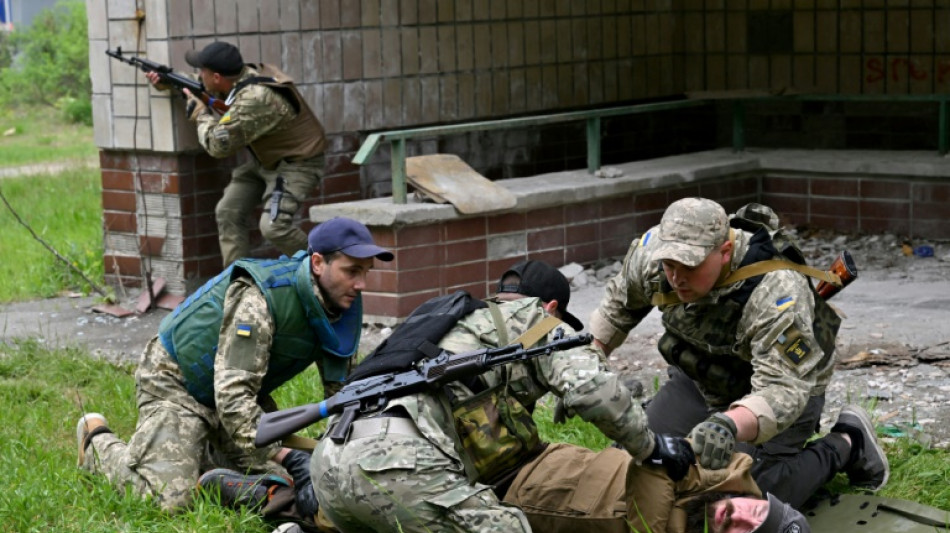
-
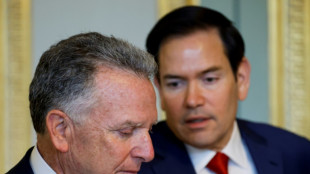 US expects Iran talks but Trump presses sanctions
US expects Iran talks but Trump presses sanctions
-
Baffert returns to Kentucky Derby, Journalism clear favorite
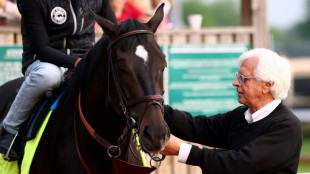
-
 Top Trump security official replaced after chat group scandal
Top Trump security official replaced after chat group scandal
-
Masked protesters attack Socialists at France May Day rally
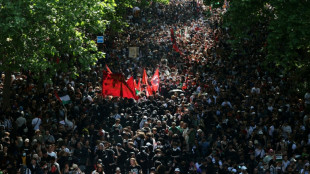
-
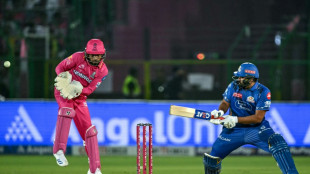 Mumbai eliminate Rajasthan from IPL playoff race with bruising win
Mumbai eliminate Rajasthan from IPL playoff race with bruising win
-
McDonald's profits hit by weakness in US market
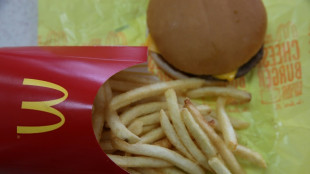
-
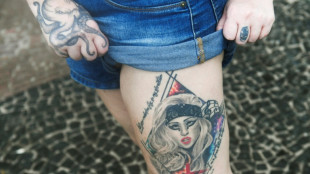 Rio goes Gaga for US singer ahead of free concert
Rio goes Gaga for US singer ahead of free concert
-
New research reveals where N. American bird populations are crashing

-
 Verstappen late to Miami GP as awaits birth of child
Verstappen late to Miami GP as awaits birth of child
-
Zelensky says minerals deal with US 'truly equal'
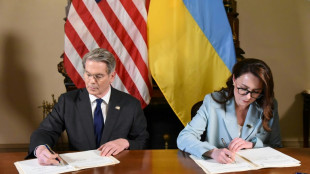
-
 Weinstein lawyer says accuser sought payday from complaint
Weinstein lawyer says accuser sought payday from complaint
-
Police arrest more than 400 in Istanbul May Day showdown
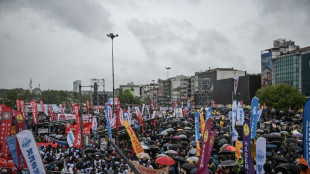
-
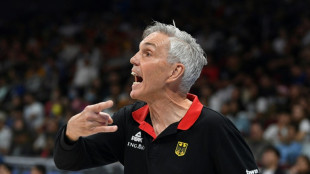 Herbert named head coach of Canada men's basketball team
Herbert named head coach of Canada men's basketball team
-
'Boss Baby' Suryavanshi falls to second-ball duck in IPL
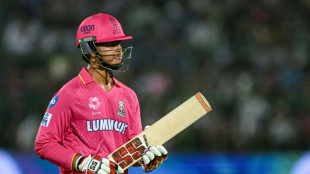
-
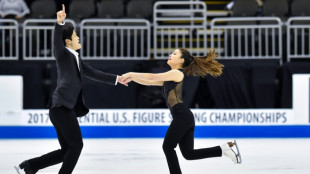 Shibutani siblings return to ice dance after seven years
Shibutani siblings return to ice dance after seven years
-
300,000 rally across France for May 1, union says
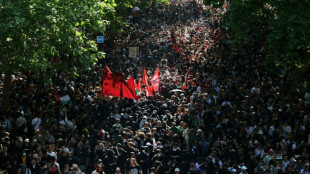
-
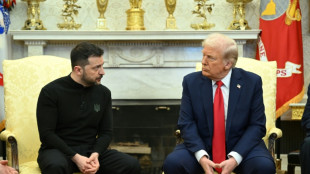 US-Ukraine minerals deal: what we know
US-Ukraine minerals deal: what we know
-
Top Trump official ousted after chat group scandal: reports

-
 Schueller hat-trick sends Bayern women to first double
Schueller hat-trick sends Bayern women to first double
-
Baudin in yellow on Tour de Romandie as Fortunato takes 2nd stage

-
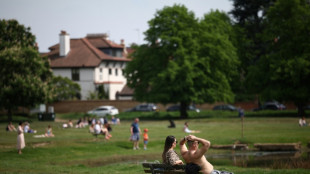 UK records hottest ever May Day
UK records hottest ever May Day
-
GM cuts 2025 outlook, projects up to $5 bn hit from tariffs

-
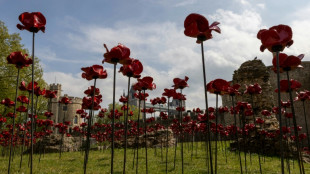 Thousands of UK children write to WWII veterans ahead of VE Day
Thousands of UK children write to WWII veterans ahead of VE Day
-
Top Trump official exiting after chat group scandal: reports

-
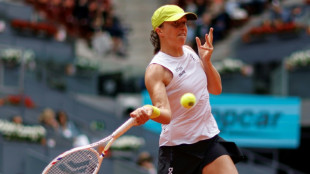 Madrid Open holder Swiatek thrashed by Gauff in semis
Madrid Open holder Swiatek thrashed by Gauff in semis
-
Sheinbaum says agreed with Trump to 'improve' US-Mexico trade balance

-
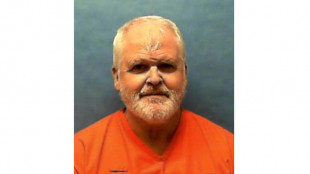 US veteran convicted of quadruple murder to be executed in Florida
US veteran convicted of quadruple murder to be executed in Florida
-
UK counter terrorism police probe Irish rappers Kneecap
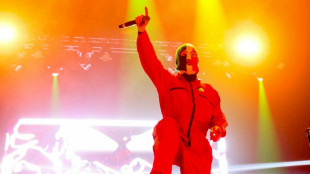
-
 S. Korea crisis deepens with election frontrunner retrial, resignations
S. Korea crisis deepens with election frontrunner retrial, resignations
-
Trump administration releases report critical of youth gender care
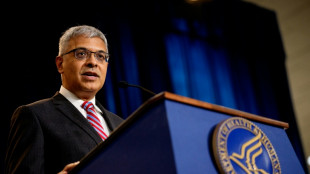
-
 IKEA opens new London city centre store
IKEA opens new London city centre store
-
Police deploy in force for May Day in Istanbul, arrest hundreds
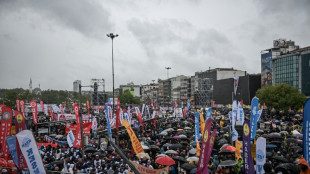
-
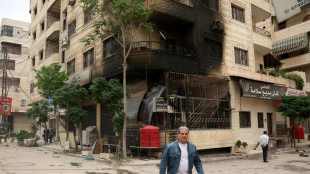 Syria Druze leader condemns 'genocidal campaign' against community
Syria Druze leader condemns 'genocidal campaign' against community
-
Prince Harry to hear outcome of UK security appeal on Friday
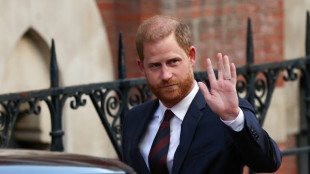
-
 Microsoft raises Xbox prices globally, following Sony
Microsoft raises Xbox prices globally, following Sony
-
US stocks rise on Meta, Microsoft ahead of key labor data
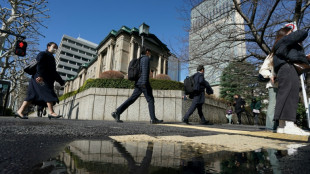
-
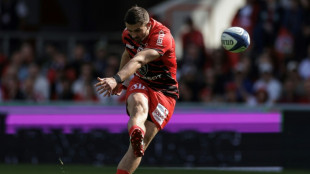 Toulouse injuries mount as Ramos doubtful for Champions Cup semi
Toulouse injuries mount as Ramos doubtful for Champions Cup semi
-
Guardiola glad of Rodri return but uncertain if he'll play in FA Cup final
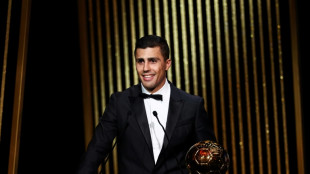
-
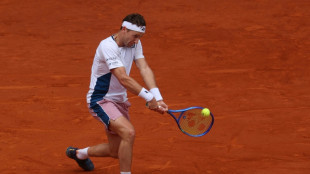 Ruud sails past Medvedev into Madrid Open semis
Ruud sails past Medvedev into Madrid Open semis
-
'Not a commodity': UN staff rally over deep cuts
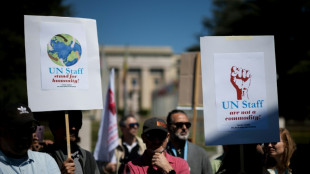
-
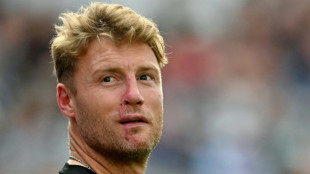 Flintoff proud as Afghan refugee protege plays for Lancashire second team
Flintoff proud as Afghan refugee protege plays for Lancashire second team
-
Peruvian cardinal accused of abuse challenges late pope's sanction
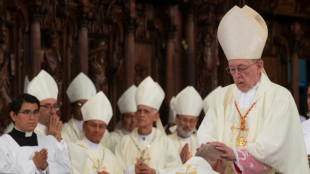
-
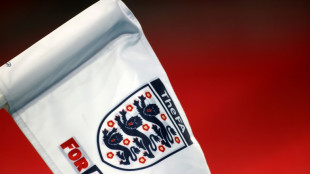 Trans women barred from women's football by English, Scottish FAs
Trans women barred from women's football by English, Scottish FAs
-
Oil prices drop, stocks diverge amid economic growth fears
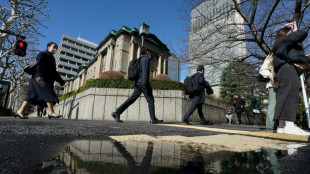
-
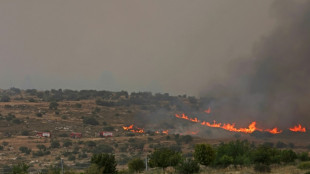 Israel brings fire near Jerusalem 'under control', reopens roads
Israel brings fire near Jerusalem 'under control', reopens roads
-
Lopetegui appointed coach of Qatar

-
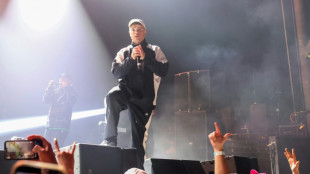 UK counter-terrorism unit probes rappers Kneecap but music stars back band
UK counter-terrorism unit probes rappers Kneecap but music stars back band
-
Yamal heroics preserve Barca Champions League final dream
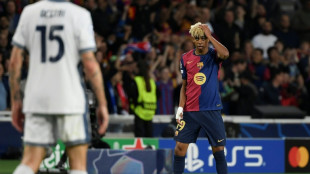
-
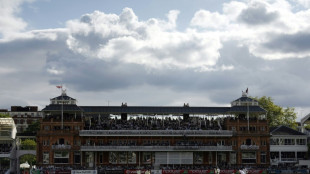 2026 T20 World Cup 'biggest women's cricket event in England' - ECB
2026 T20 World Cup 'biggest women's cricket event in England' - ECB
-
Bangladesh begins three days of mass political rallies
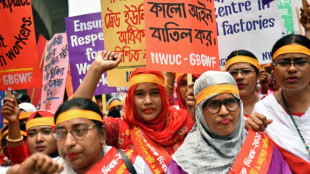

Mechanics, hairdressers... Ukraine recruits train for attack
"Hold on to the rope, look at me," the instructor says, coaxing 28-year-old lawyer Iryna Gorobiyovska who is nervously about to abseil down a building.
Brimming with motivation but lacking experience, the Ukrainian, whose nom de guerre is Bunny, ends up sliding, somewhat awkwardly, to the ground.
Like thousands of others, she signed up to the territorial defence unit, a support force to the regular Ukrainian army, immediately after Russia invaded.
Open to all nationals, the only requirement is being aged between 18 and 60.
Some members already have military experience acquired after Moscow's annexation of Crimea in 2014 and in the conflict with pro-Russian separatists in eastern Ukraine that began the same year.
They immediately deployed to the war effort, but many others, like Gorobiyovska, did not know how to handle a weapon or apply a tourniquet.
While the capital Kyiv was under siege by Russian forces earlier in the war, they mostly helped build barricades or hand out humanitarian aid.
Russian soldiers are now focused on the south and eastern regions of Ukraine, but -- anticipating a drawn-out conflict -- Kyiv has stepped up the training of its new recruits so they are ready to face the enemy if and when needed.
- Taught 'how to attack' -
Training sessions have been held every week since March, says Mykhailo Shcherbina, deputy director of defence affairs for the Department of Municipal Security at Kyiv City State Administration.
He says that between 8,000 and 10,000 people have been trained since March.
"It's a crime to send people who aren't prepared to a frontline. Everyone has to be trained even (to a) minimum," he tells AFP.
It's all the more crucial now, he adds, as after largely defensive operations, Ukrainian forces have begun going more on the offensive, such as in the area around the northern city of Kharkiv.
"And we have to teach people how to attack, how to liberate the cities," he says.
- 'Defend my country' -
Deep in the forest, away from the capital, an old hut formerly used by the Pioneers, the Soviet version of the Scouts, is now a training ground.
Over five days, mechanics, construction workers, hairdressers and the likes are put through their paces, learning how to navigate a minefield, evacuate the wounded under fire, shoot an automatic weapon -- or escape through the window of a multi-storey building.
It's the latter that causes difficulty for Gorobiyovska.
"It was so scary because I didn't understand what should I do," says the woman with khaki painted fingernails afterwards.
"I agree to defend my country. But I hope I won't have to climb down from a high storey" to do it, she adds.
In another training exercise, the recruits must take back a site held by the enemy.
Advancing in single file, their weapons trained as they pass open areas, a small group enters an abandoned building.
"Contact", "contact," one of them shouts out amid the crackling of weapon fire -- in this case, their amunition is small white plastic pellets.
"Our task is to teach them to do fighting correctly in buildings, to know how to clear them and annihilate the enemy," an instructor, who declines to give his name, says.
"And remain alive."
- 'A chance' -
Konstantin, a 27-year-old municipal employee, knows the stakes only too well.
He joined the territorial defence unit after fighting got close to his home in March, he says.
"I couldn't not do anything, so I joined the territorial defence to protect my town, my country," he explains.
He acknowledges however: "If I'd gone straight to the frontline, I wouldn't have survived."
Now, having undergone his training, he believes he "has a chance".
Nevertheless the baby-faced young man wonders how he'll react when on the ground in a real-life situation.
"Training is training, but when you see real blood it's different. Is it going to stop me in my tracks, or give me a rush of adrenaline?" he says.
Doctor Demian Popov, 53, tries to provide the recruits with methods of overcoming battle stress and teaches them about post-traumatic stress disorder and the role of intuition in battle.
He says that despite them being highly motivated "there is no methodology to find out who will leave the battle and who will not".
"It will be known only when the person will get there if he/she can fight or not," he adds.
M.Fischer--AMWN